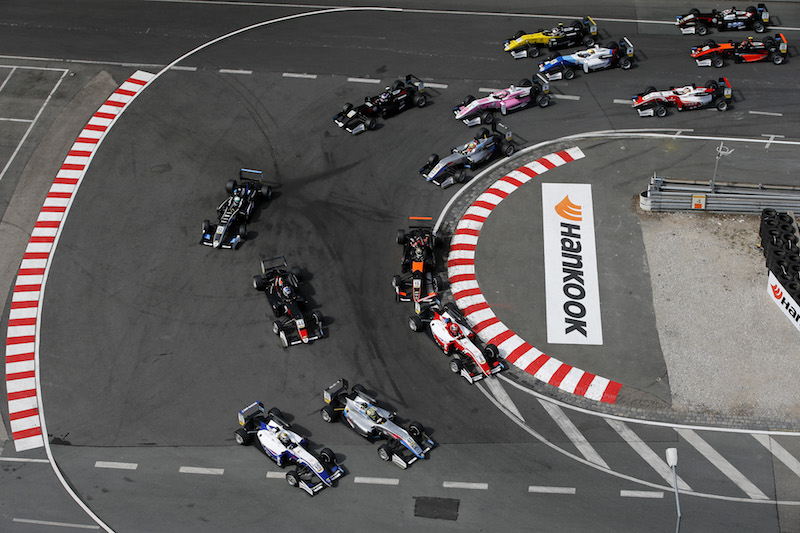 A case involving Formula 3 team Hitech GP and Enaam Ahmed was brought to the High Court of Justice three weeks ago.
A case involving Formula 3 team Hitech GP and Enaam Ahmed was brought to the High Court of Justice three weeks ago.
The case centered about a claim from Hitech over unpaid racing fees in relation to BRDC British F3 champion Ahmed and the Enaam Motor Sport Limited (EMSL) company that plays a role in financing his racing career and is controlled by his family.
A sum of £468,479.57 was asked for (plus interest) in accordance to two agreements from 2018 – when Hitech ran Ahmed in FIA European F3 – which the family were bound to. Hitech expected £367,148 direct from EMSL, and £101,331 from the family.
EMSL’s defence was that the claim was overstated, admitting it owed a lower sum to Hitech, but was not present at the trial. Ahmed said he had already paid off his racing debts.
The claim alleged Ahmed had incurred “expenses, and a liability for crash damage repair costs” under the season contract he had with Hitech. Ahmed also entered the Macau Grand Prix with the team that year under a different agreement, and crashed twice in qualifying before crashing out of 11th place in the main race.
The cost of the season was €750,000 – and €60,000 for Macau – and any damage to the car was agreed to be paid for by the defendants, as well as additional logistical costs from fielding the car. The crash damage was calculated to cost £58,221.25, and additional expenses at £101,331.44.
Of the £838,641.96 total, £513,141.26 was already confirmed to be paid. One payment of £150,000 was made by sports doctor Jerome Poupel, and that was brought to trial in Ahmed’s defence as the expenses he was solely liable for – but which had not been taken as the settlement of that debt and thus was still being claimed for.
An interest of “4% per annum above the base rate of Barclays Bank plc from time to time” was set on the late payments, although that was argued in the defence as not applicable as it was not “agreements for the provision of goods or services within the meaning of the Late Payment of Commercial Debts Act” used to regulate how interest is used in contracts.
However once the evidence was presented on this, the deputy judge made some interesting conclusions.
Firstly he determined, based off Hitech having never heard of an “expenses sponsor”, and that the team was to have “no idea whatsoever” that the £150,000 fee was intended to pay off a specific debt, therefore the way the Poupel payment was accounted was not “wrongful or inequitable on any basis”, although the crash damage debt was less than invoiced for.
The next thing the judge determined was that both team and driver were parties providing goods and services, which raises questions about how future cases in junior single-seaters could be interpreted by the law.
While Ahmed paid to drive, and therefore would be considered to have purchased a service from the team to run the car he’s driving, the deputy judge decided that the driving was in fact a service being provided to the team. Therefore he was paying to provide a service. However he also agreed that the team was also supplying a service to the driver.
The context here is that if a team wants to compete in a junior single-seater series, it therefore needs drivers to run to make that entry possible. And to compete at an F3 level (rather than say some club Formula Ford races), drivers will have agreed to make themselves available for all races and tests where the team would want to run the car, and worked to be fit enough to race in F3 and trained to have the driving skill suitable for the category to provide adequate driving services for the team.
Objectives of the team as a business would be to satisfy stakeholders, such as ensuring it’s providing positive welfare to its employees, being financially stable enough to remain in competition, but also of course to succeed in the market, i.e to win races and titles in the series it races in. Which is arguably the primary objective of most racing teams.
From these considerations, the deputy judge still determined it was the driver wanting to drive for the team, rather than a free market position where the team has picked a driver who could best provide its desired services of driving, and therefore it had been agreed that Ahmed’s services would be used by Hitech if he paid for the services the team would provide in return.
So Hitech’s costs for securing the services of driving was by running the car that would enable that driving to take place, and as a junior single-seater team it was also then the driver’s responsibility to pay (either through personal finance or that of a sponsor or backer) for the running of that car. That’s unlike Formula 1, where most teams take on the financial burden themselves.
The case conclusions were that Hitech was owed “the season fees, £244,727.14; the outstanding Macau fees of £64,199.74; and the crash damage claim being £52,864.58” by EMSL, and “as against the 2nd Def [Ahmed] and EMSL jointly, there will be judgment in the amount claimed of £101,331.44”.